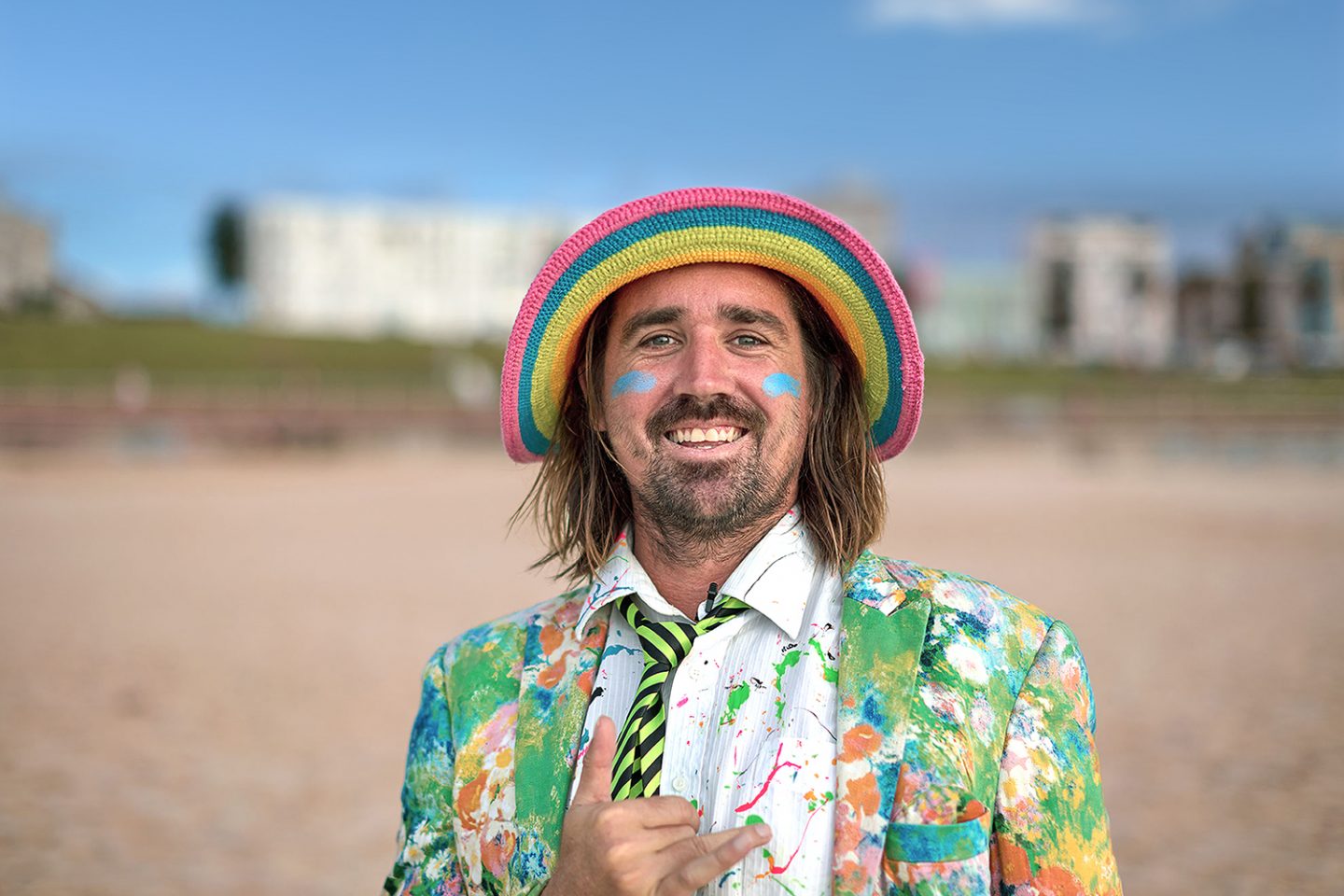Film Review:
Happy Sad Man

Genevieve Bailey’s understandably quiet documentary aims to start a conversation about men and mental illness as we follow five Australian blokes while they talk with pleasing, if sometimes confronting, openness about their personal experiences.
Bailey’s last feature doco, I Am Eleven, sparked an ongoing international discussion about childhood in contemporary times, while this long-in-production piece again finds subjects who seem so different from each other but, eventually, prove so very alike.
First up we meet John, a friend of Genevieve’s whom she’s known since she was at film school, a 70-or-so musician, bush carpenter and more who frankly discusses his bipolar disorder right from the start. Bailey obviously has a lot of affection for him and admits that he was the reason she started making the film in the first place, and yes, she does rather break the rules of documentary when she reaches out from behind the camera to pat his head when he says he’s always had problems with it. But that’s okay within this one’s warm, compassionate context.
Jake is a cinematographer she met on a film shoot who later became a war photographer and now suffers from PTSD, and we also meet Western Sydney artist David and Grant, a Bondi-based surfer with a friendly, sort-of-Aussie-Luke-Wilson vibe. They all speak about their struggles, and while their individual symptoms are less acute than John’s, they’re all no less powerful and sometimes scary. Grant says, for example, that a series of misfortunes led to him completely losing touch with reality in about a week, and he was lucky to make it through unscathed.
Ivan is the odd man out here: he’s a mental health officer from country Victoria who travels to isolated communities and especially families affected by drought and tries to help those affected psychologically and spiritually. Bailey travels with him to a ‘Men’s Shed’ and assumes that all the tough old types she sees would shy away from discussing anything to do with mental illness or even feelings, but then she’s surprised when a concerned senior approaches to talk. And she captures it all on film, with his consent.
The whole subject of boundaries is a bit tricky, perhaps, when we see later John at his most ‘down’ and hospitalised, and yet it’s important that we witness at least one of the blokes here at their lowest ebb to appreciate that there is no shame in it. Bailey and John know that, and so should we.
Some viewers might also have a problem with the notion of redefining or reevaluating modern masculinity, but it’s surely time to do just that, guys. Emotions are real. Mental illness is real. Let’s talk.
Happy Sad Man (M) is in limited release